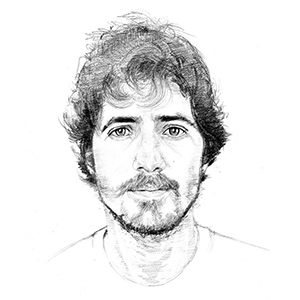
The diving reflex
Freediving consists of holding your breath, going underwater, relaxing, and moving in specific ways to reduce oxygen consumption and last longer—a highly technical sport that requires mental and physical preparation that has little to do with scuba diving and snorkeling.
An exciting part of diving is that, as humans, we benefit from the so-called mammalian diving reflex, "a set of physiological responses to immersion […] that optimizes respiration by preferably distributing oxygen stores to the heart and brain, enabling submersion for an extended time."1 "The diving reflex is triggered specifically by chilling and wetting the nostrils and face while breath-holding."1
The simple act of putting your face in a bucket full of water activates the diving reflex—optimizing the inner workings of your body—causing bradycardia, apnea, and increased peripheral vascular resistance.2 Bradycardia (the opposite of tachycardia) brings the heart rate down, decreasing the work of the heart and limiting unnecessary oxygen usage, allowing us to stay underwater longer.2 "Increased peripheral resistance is thought to redistribute blood to the vital organs while limiting oxygen consumption by non-essential muscle groups."1
The diving reflex exhibits strongly in aquatic mammals (think of seals, otters, dolphins, and muskrats), and as a lesser response in us, adult humans, babies up to six months old, and diving birds (such as ducks and penguins).1
While looking for whether this reflex manifested while showering, I came across Your body's amazing reaction to water, a 2014 publication by James Nestor on TED Ideas. "Peripheral vasoconstriction explains how [a human] could dive to below thirty meters without suffering the lung-crushing effects that Boyle's law had predicted."3 As it turns out, equivalent pressures on land would harm our body, but not in water. And our amphibious reflexes become stronger the deeper we dive.3
We experience this phenomenon in the shower. The human body goes into a meditative state, with lower heart rates and blood pressure than the rest of your day. With more resources allocated to our brain and external inputs limited, we stay with our thoughts in an elevated mental state. Maybe, the diving reflex is one of the keys to why ideas often spark in the shower.
I brought a minimal recording setup inside my backpack to Tenerife—two Shure SM58 microphones and a Zoom H6 recorder—just in case I found a chance to record material for the podcast.
Before parting ways at the boarding gate, Jose Luis and I captured our first impressions after a week of freediving classes; what we learned, what we loved, and things we thought we knew but didn't.
We talked about the mindfulness of breath-hold diving and being deep underwater, best practices, equipment and techniques, equalizing your middle ear pressure, scuba versus freediving, and how recommendation systems brought us there.
You can Listen to our Getting Simple episode on Freediving.
Diving reflex. Wikipedia. ↩ ↩ ↩ ↩
Godek, Devon. Andrew M. Freeman. Physiology, Diving Reflex. NCBI. ↩ ↩

